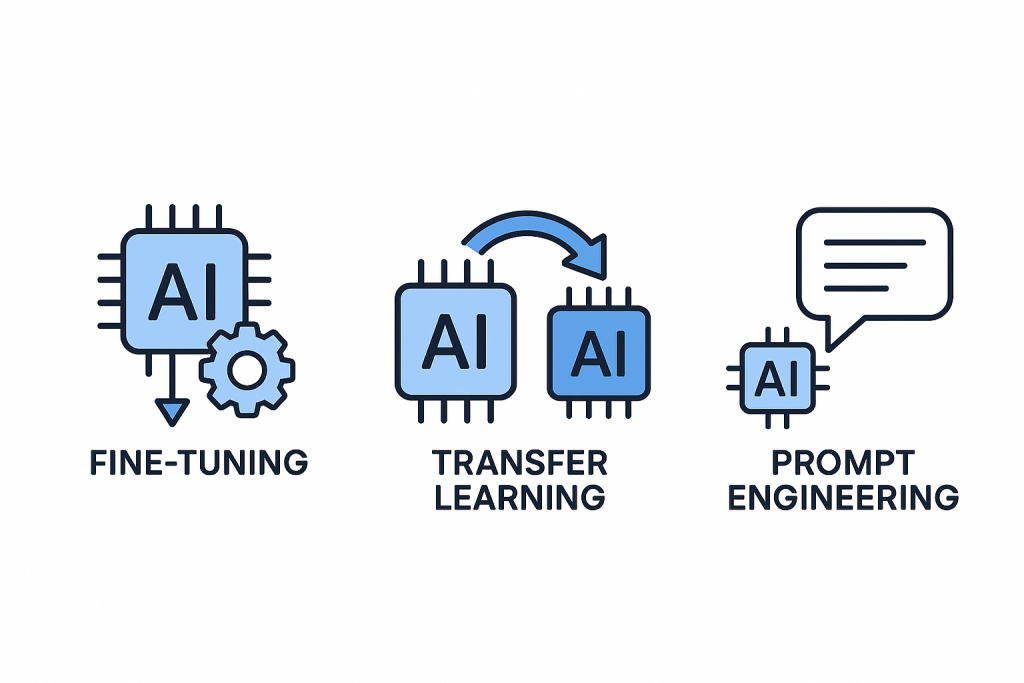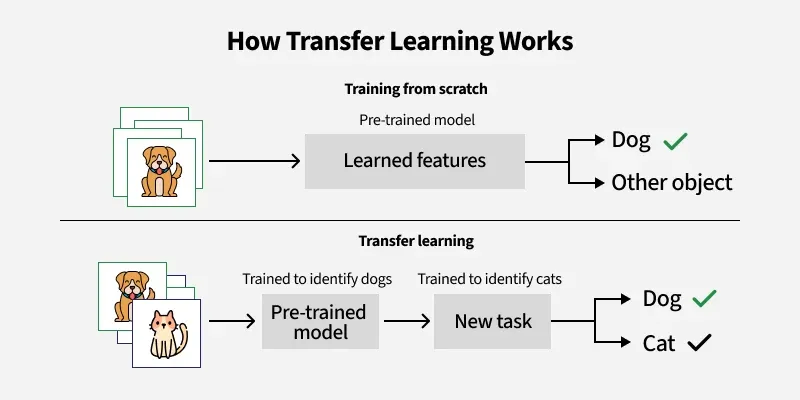
AI models can be optimized and specialized for specific tasks using Fine-Tuning, Transfer Learning, and Prompt Engineering. These techniques help improve AI performance, efficiency, and accuracy.
Fine-Tuning
What Is Fine-Tuning?
Fine-tuning customizes a pre-trained AI model for a specific task or industry by training it on specialized datasets.
Examples:
-A general AI chatbot is fine-tuned to become a medical assistant by training it on medical records and research papers.
-A language model trained on general text is fine-tuned on legal documents to become a legal AI assistant.
Why Use Fine-Tuning?
-AI learns domain-specific knowledge (e.g., finance, medicine, law).
-Improves accuracy and performance for specialized tasks.
-Reduces errors in industry applications.
Transfer Learning
What Is Transfer Learning?
Transfer Learning lets AI models use knowledge from one task and apply it to another, avoiding the need to train from scratch.

Examples:
-An AI model trained to recognize cats in images can be quickly adapted to recognize dogs using only a small dataset.
-AI trained on English text can transfer its knowledge to learn Spanish more quickly.
Why Use Transfer Learning?
-Saves training time and resources.
-AI adapts faster to new tasks.
-Works well with limited training data.
Prompt Engineering
What Is Prompt Engineering?
Prompt engineering optimizes how users interact with AI models by crafting effective input queries.
Example:
Instead of asking: “Tell me about AI,”
A better prompt: “Explain AI like I’m 10 years old with real-world examples.”
Instead of: “Summarize this article,”
A better prompt: “Summarize this article in 3 bullet points for a business executive.”
Why Use Prompt Engineering?
-Increases response accuracy and relevance.
-Helps AI generate specific, high-quality results.
-No need for extra training—just optimize how you ask questions.
Comparison Table of AI Optimization Techniques
| Method | Purpose | Example |
| Fine-Tuning | Adapts AI for specific industries | Training an AI model on legal documents to make it a legal assistant |
| Transfer Learning | Uses knowledge from one task to another | AI trained on cats can learn dogs faster with less data |
| Prompt Engineering | Optimizes user interactions | Rewriting a prompt to get more accurate AI responses |
Summary
Fine-Tuning: Customizes AI for specific industries (e.g., medical, legal, finance).
Transfer Learning: AI reuses knowledge from one task to learn another faster.
Prompt Engineering: Improves AI responses by asking better questions.

Leave a Reply